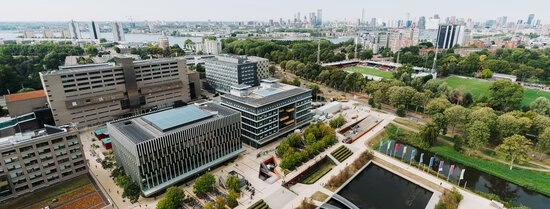All new ideas depend on previous thoughts and experiences. Whether we deal with prejudice or with liberating forms of insight, today’s opinions and taboos have a background in the views and cognitive practices of the past, just as today’s ways of questioning and criticizing our convictions have been – and often still are – inspired by earlier authors and thinkers.
With a focus on European intellectual history from the Renaissance to the Enlightenment and beyond, the research programme The Making of Modernity in various ways explores how our modern intellectual universe emerged from its earlier stages, how it fits into the global intellectual perspective and how its representation may serve present-day discussions of our past as well as of our own scientific and societal aims.
The Making of Modernity is a research programme targeted at studying how ‘modern’ philosophical notions arose in the early modern age, on the premise that our own day and age can only be clearly understood by studying its genesis in its own, historical context.
Projects within The Making of Modernity range from politically charged issues to philosophically entangled problems – from the intellectual origins of racism to theories of knowledge that link seventeenth-century metaphysics to modern neuroscience and modern epistemology to Hellenistic philosophy. Fascinated with forgotten aspects of our cultural heritage, research within The Making of Modernity also finds its inspiration in uncovering the works of unknown early-modern freethinkers and unfairly dismissed feminists, as well as in pointing out the continued relevance of such big names as ‘our own’ Erasmus for present-day debates on values.
Erasmus School of Philosophy has become an international centre of excellence for the history of early modern thought, receiving international acclaim and visibility for its expertise in Renaissance, seventeenth-century and Early Enlightenment thought.
The Making of Modernity builds on a long tradition of historical research in earlier projects such as The History of Philosophy in the Netherlands, The Early Enlightenment and the Dutch Republic, From Erasmus to Spinoza and The Digital Locke Project. Over the years, its members have produced a steady stream of papers, articles, lexicon entries, edited volumes and monographs covering various areas of specialisation, as well as much commended encyclopaedic works on distinct periods and single authors (The Dictionary of Seventeenth- and Eighteenth-Century Dutch Philosophers, The Continuum Companion to Spinoza, The Continuum Companion to Locke).
A specific area of specialisation within our research group is the publication of modern text editions (Latin, French, Dutch and English) of works by early-modern authors (Descartes, Geulincx, Spinoza, Locke, Leibniz, Bayle). Recent and upcoming editions also include works of lesser-known authors, such as Adriaan Koerbagh and Balthasar Bekker; authors for whom there is a renewed interest, such as Germaine de Staël; and revised output by canonical authors, as in the case of the new critical edition of Descartes’ Correspondence for Oxford University Press.
Seeking new opportunities for future research projects in an interdisciplinary and intercultural setting, The Making of Modernity continues to strive towards combining a scholarly approach to past philosophical texts with a reassessment of their ongoing relevance to contemporary issues in science and society.
Projects
Decoding Descartes
Cartesian Networks
Institutes
Erasmus of Rotterdam Research Centre
Staff
- Erik-Jan Bos
- Ada Bronowski
- Wiep van Bunge
- Paul van Geest
- Henri Krop
- Bart Leeuwenburg
- Ronald van Raak
- Han van Ruler
- Andrea Sangiacomo
- Paul Schuurman
PhD/Postdoc
- Renske ter Avest
- Michiel Buis
- Sara Madera Gomez
- Eveline Groot
- Tomoko Higuchi
- Lehel Csongor Markó
- Doğukan Öztürkoğlu
- Sanne Steen
Fellows
- Brian Cummings
- Maddalena Mazzocut-Mis
- Efi Papadodima
- Ruorong Xu
